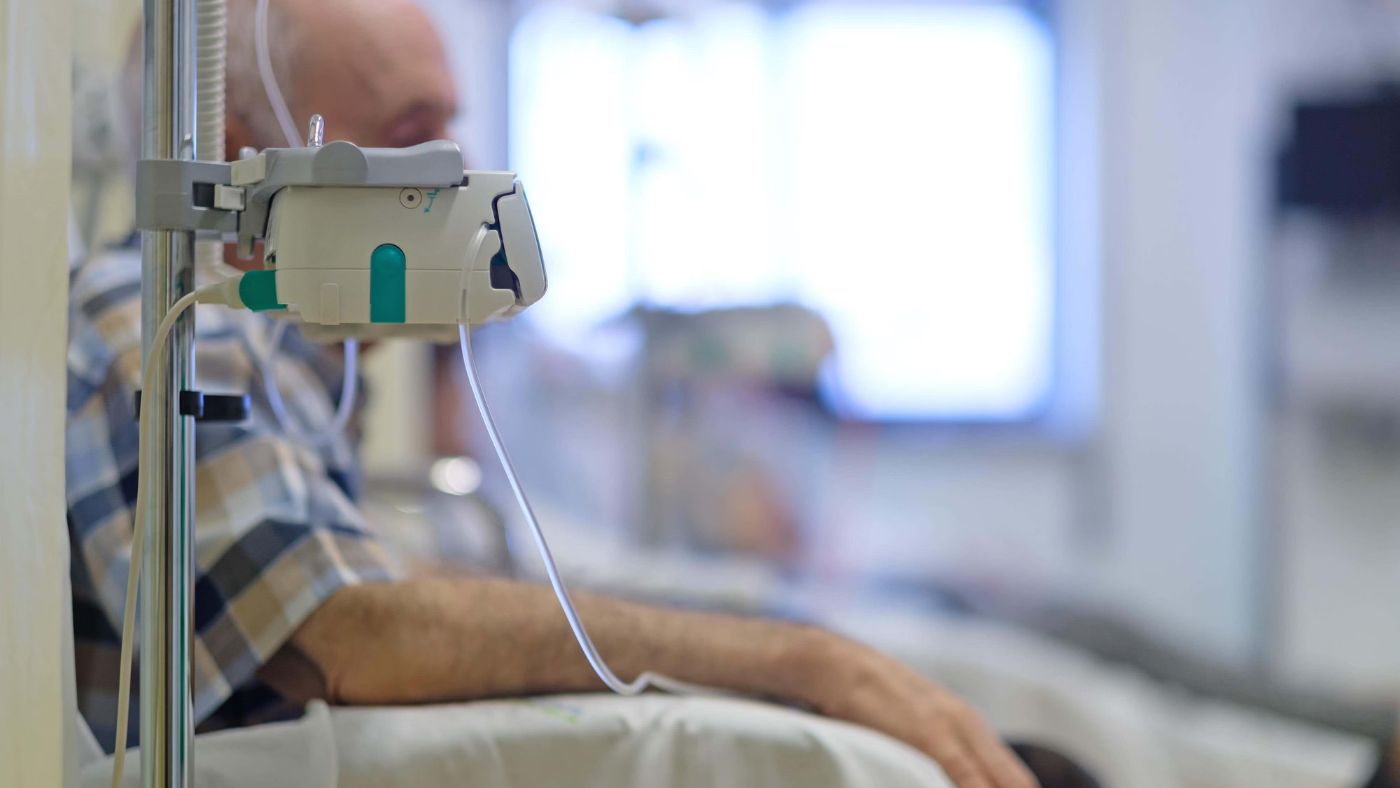More than a third of cancer patients in England are encountering potentially life-threatening delays, according to leading doctors, as thousands of individuals are being compelled to wait for months before commencing treatment.
The latest performance data for England indicates a significant rise in prolonged waits in Accident & Emergency (A&E) departments, despite an decline in the NHS waiting list.
By the end of December, there were approximately 7.6 million health treatments pending across England, affecting 6.37 million patients—a slight decrease from November’s figures of 7.61 million treatments and 6.39 million patients.
Concerns have been raised by doctors regarding the NHS’s ability to meet cancer targets, especially concerning the time from urgent suspected cancer referral to the initiation of definitive treatment.
Notably, this critical target has not been met for eight consecutive years, with only 65.9% of patients receiving treatment within 62 days of referral in December, up slightly from 65.2% in November.
The target stands at 85% and was last achieved in December 2015.
This situation has garnered attention against the backdrop of King Charles beginning cancer treatment promptly after diagnosis, although Buckingham Palace has not disclosed whether he is receiving private healthcare or NHS treatment.
Professor Pat Price, a prominent NHS oncologist, commented,
“The King’s response to his diagnosis has been characterized by transparency, leadership, and courage.
His heightened visibility underscores the pervasive impact of cancer across families in the nation, given that one in two of us will be diagnosed.”
Price, who co-founded the #CatchUpWithCancer campaign, emphasized, “Today’s NHS data reveals that over a third of cancer patients are confronting potentially fatal delays.
In December alone, 7,661 cancer patients waited longer than the recommended maximum of 62 days to commence treatment, with 2,227 enduring waits of three months or more.”
Highlighting the persistent nature of these delays over recent years, Price continued, “Over 225,000 patients have now experienced treatment delays in the past three years.
There has never been a more critical time for a renewed, decisive focus on cancer, underpinned by radical actions.”

The data further showed that 74.2% of patients urgently referred for suspected cancer in December 2023 received a diagnosis or had cancer ruled out within 28 days, a slight improvement from 71.9% in November against a target of 75%.
Expressing deep concern, Delyth Morgan, CEO of Breast Cancer Now, stressed,
“Far too many patients are enduring lengthy, anxiety-ridden waits to have symptoms assessed, receive a diagnosis, and commence crucial treatments that could significantly enhance their chances of survival.”
Morgan added, “Immediate action is imperative. This necessitates investments in diagnostic personnel, enhanced transparency in cancer waiting time data, and robust support for cancer services to deliver optimal care.”
Meanwhile, the data highlighted continued pressures on hospitals, with the number of patients waiting over 12 hours in A&E from the decision to admit rising to 54,308 in January from 44,045 in December—a near-record figure.
Additionally, the figures revealed worsening waits for planned treatments, with 13,164 people waiting over 18 months for routine hospital care at the end of December, up from 11,168 in November.
Responding to these challenges, a spokesperson from the Department of Health and Social Care reaffirmed the government’s commitment to improving patient care, citing the creation of additional hospital beds and hospital-at-home facilities to alleviate capacity strains and reduce waiting times.
Reflecting on these developments, Prof Sir Stephen Powis, NHS England’s medical director, acknowledged the efforts of healthcare staff in reducing the waiting list but cautioned that winter pressures continued to pose significant challenges to the NHS.
Powis urged the public to utilize NHS services appropriately, advising them to seek advice via NHS 111 for non-emergency conditions and to call 999 in life-threatening emergencies.
